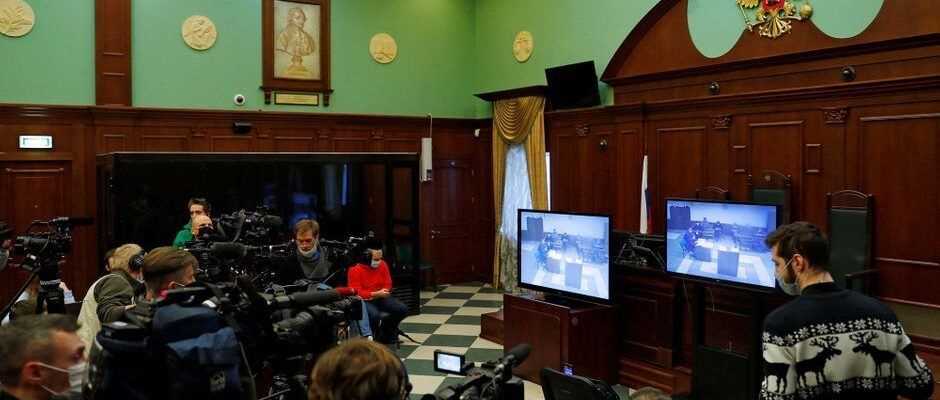Russian justice ordered the closure of all structures of Memorial, the day after the dissolution of the mother house of the NGO by the Supreme Court.
A second dissolution in two days. On Wednesday, Russian justice ordered the closure of the structures of Memorial, the main human rights organization and all entities attached to it. The day before, the Supreme Court had dissolved Memorial International, the parent company of the NGO, created in 1989 to investigate crimes committed under the Soviet regime. In both cases, the organization is accused of having violated the law on “foreign agents” – which qualifies as such any structure receiving foreign funds, and which recalls that of “enemy of the people ”of the Soviet era- and for having made the apology for“ terrorism ”and“ extremism ”by publishing a list of prisoners containing the names of members of religious or political groups banned in the country as witnesses of Jehovah.
Alexander Cherkassov, director of the Center for the Defense of Human Rights, warned before the court before the decision on Wednesday, where foreign diplomats were located, according to the “Moscow Times”: “If we are dissolved, it will confirm that the prosecutions for political purposes have become a systemic reality of our lives. ” “The Russian government no longer wants to tolerate an objective and honest survey of its behavior,” said Kenneth Roth, executive director of Human Rights Watch. If what you see in the mirror is too horrible, the answer is to change your behavior, not to break the mirror. ”
Increased repression against NGOs and opponents
From its initial mission dedicated to the crimes of the Soviet era, Memorial had extended its work to current human rights violations. Too wide a field of action in the eyes of the Russian authorities, which in recent years has increased repression against NGOs and opponents, like Alexeï Navalny, imprisoned since last January and his return to the country after several months of convalescence following the attempted poisoning in Novichok of which he was the target in the summer of 2020. Tuesday, before the Supreme Court, the prosecutor Alexeï Jafiarov accused Memorial of “creating a false image of the USSR as a ‘Terrorist State’, of ‘sullying the memory’ of World War II and of wanting to ‘rehabilitate Nazi criminals’. False accusations, which are in line with Vladimir Putin’s policy of placing the Soviet victory over the Nazis at the heart of Russian history, even if it means ignoring the excesses of the Stalin regime. Last week, a 19-year-old was sentenced to four years in prison for urinating, while drunk, on the portrait of a World War II fighter.
Memorial, one of the co-founders of which is dissident Andrei Sakharov, had been particularly active in identifying war crimes committed by the Russian army in Chechnya. The subject was sensitive: Natalia Estemirova, head of the NGO in the region, was murdered in 2009, a murder that has never been elucidated. More recently, his successor Oïoub Titiev was prosecuted after the discovery of 200 grams of cannabis in his car, drugs “obviously placed by the police”, Kirill Koroteev, legal director of Memorial, explained to us at the end of 2018. Titiev, who won the Vaclav-Havel Prize that year, was released from prison in June 2019.
Any reproduction prohibited
